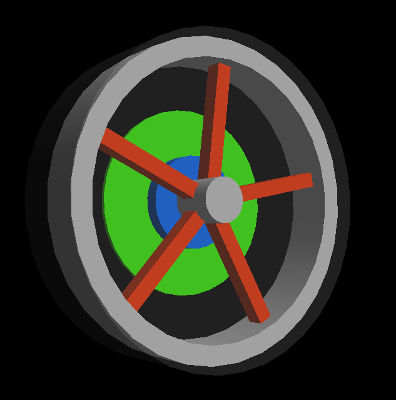
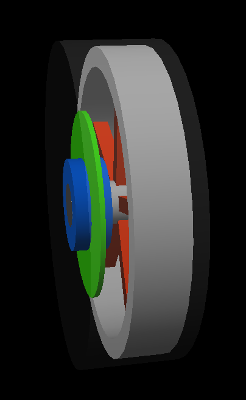
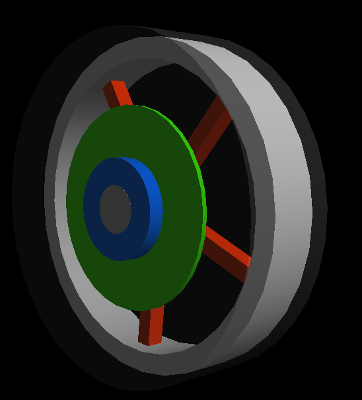
Demonstration of the PADRE component assessment mode. This analysis considers a component-centric MADRE 5 spoke reaction wheel model with a steel flywheel. Re-entry is predicted from a circular orbit from 130km altitude using the MADRE version of SESAM. This is enhanced over the current DRAMA 3.0.4 with the inclusion of support for ring primitives, material catalycity and automatic scaling of voxel size. Orbital inclination is selected randomly from a uniform distribution across the full range. An undemisable parent vehicle with a ballistic coefficient randomly selected in the range 50kg/m^2 to 200kg/m^2 is chosen and propagated to a release altitude of between 50km and 100km, at this point the child sub-assembly is released and its various components are propagated to demise or impact. Normal PADRE uncertainties on material properties, heating, drag and atmospheric densities are also applied. A standard Monte-Carlo analysis of 5000 simulations has been executed.



The following plots provide an overview of the component performance. They show results for all simulations including those where no fragment large enough to generate a casualty risk impacted the ground. In all cases the aggregate values of all fragments within each simulation is provided. At the bottom of the page links to more detailed output is provided.
Profile of the number of impacting fragments as a function of release altitude.
| All Simulations | |
|---|---|
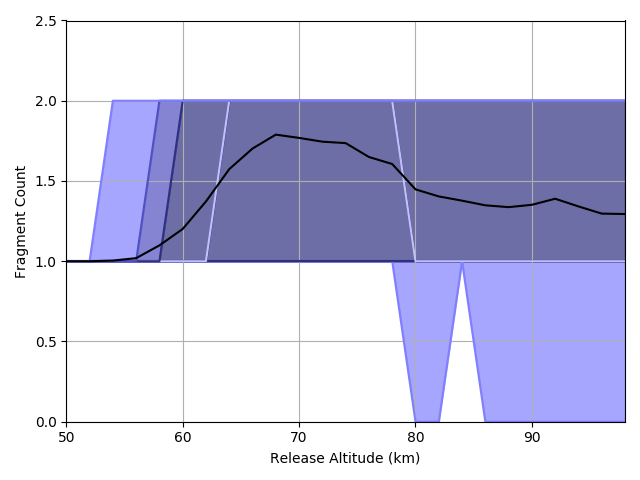 |
 |
| Plot Data: View / Download |
Profile of the total casualty area of resulting from all fragments as a function of release altitude.
| All Simulations | |
|---|---|
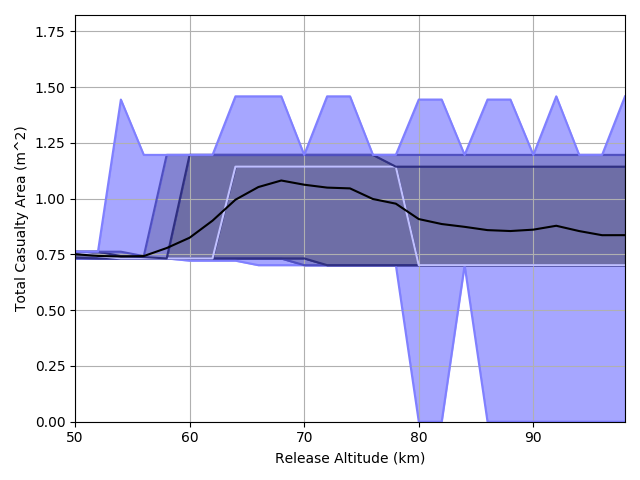 |
 |
| Plot Data: View / Download |
Profile of the total landed mass resulting from all fragments as a function of release altitude.
| All Simulations | |
|---|---|
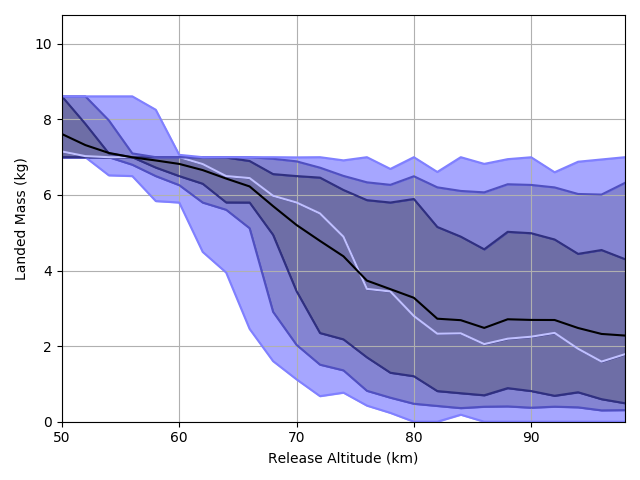 |
 |
| Plot Data: View / Download |
©Belstead Research Limited 2021